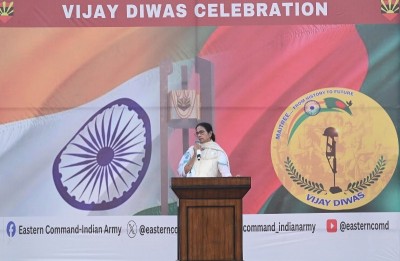 Rice
Rice
India decides to allow rice export to Singapore
India has decided to export rice to Singapore, a nation with which New Delhi shares a 'special relationship', to “meet the food security requirements” of the Southeast country.
“India and Singapore enjoy a very close strategic partnership, characterized by shared interests, close economic ties and strong people-to-people connect. In view of this special relationship, India has decided to allow the export of rice to meet the food security requirements of Singapore,” MEA official spokesperson Arindam Bagchi was quoted as saying by ANI news agency on Tuesday in response to media queries on rice export to Singapore.
“Formal orders in this regard will be issued shortly,” Bagchi added.
Recently, New Delhi introduced additional safeguards on exports of basmati rice so as to prevent exports of non-basmati white rice.
The food item is presently under the prohibited category.
The Indian government on Sunday said: "To check the domestic prices and to ensure domestic food security, the Government has been taking measures to restrict export of rice from India. The export of non-basmati white rice was prohibited on 20th July 2023."
It has been noticed that despite restriction on certain varieties, rice exports have been high during the current year.
Up to August 17, total exports of rice (other than broken rice, export of which is prohibited) were 7.33 MMT compared to 6.37 MMT during the corresponding period of previous year, registering an increase of 15.06%.
There has been a spurt in the export of parboiled rice and Basmati rice; both of these varieties did not have any restriction on exports.
While the export of parboiled rice has grown by 21.18% (3.29 MMT during the current year compared to 2.72 MMT during previous year), export of Basmati rice has increased by 9.35% (1.86 MMT during the current year compared to 1.70 MMT during previous year).
Export of non-basmati white rice, which had an export duty of 20% since 9th September 2022 and has been prohibited w.e.f. 20th July 2023, has also registered an increase of 4.36% (1.97 MMT compared to 1.89 MMT during previous year).
On the other hand, as per third Advanced Estimate of Department of Agriculture & Farmers Welfare, during the Rabi Season 2022-23, the production was only 158.95 LMT against 184.71 LMT during Rabi Season of 2021-22 i.e., there was a decline of 13.84%.
Internationally, due to strong demand from Asian buyers, production disruptions registered in 2022/23 in some major producing countries like Thailand, and fears of possible adverse effect of the onset of El Nino, international rice prices have also been rising continuously since last year.
The FAO Rice Price Index reached 129.7 points in July 2023; its highest value since September 2011, registering an increase of 19.7% over past year levels.
As the prices of Indian rice are still cheaper than the international prices, there has been a strong demand for Indian rice, resulting in record exports during 2021-22 and 2022-23.
The Government has received credible field reports regarding misclassification and illegal export of non-basmati white rice, export of which has been prohibited with effect from July 20.
It has been reported that non-basmati white rice is being exported under the HS codes of parboiled rice and Basmati rice.
Support Our Journalism
We cannot do without you.. your contribution supports unbiased journalism
IBNS is not driven by any ism- not wokeism, not racism, not skewed secularism, not hyper right-wing or left liberal ideals, nor by any hardline religious beliefs or hyper nationalism. We want to serve you good old objective news, as they are. We do not judge or preach. We let people decide for themselves. We only try to present factual and well-sourced news.







